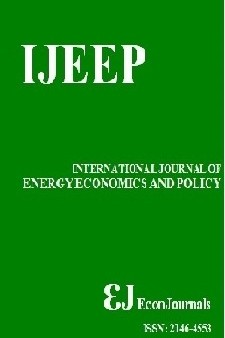Energy Imports, Geoeconomics, and Regional Coordination: The Case of Germany and Poland in the Baltic Energy System - Close Neighbours, Close(r) Cooperation?
Energy Imports, Geoeconomics, and Regional Coordination: The Case of Germany and Poland in the Baltic Energy System - Close Neighbours, Close(r) Cooperation?
Baltic Sea region, energy flows geoeconomics,
- Başlangıç: 2011
- Yayıncı: İlhan ÖZTÜRK
Assessing the Future of Energy Security in Egypt
Baher Mohamed ATLAM, Asmaa Melegy RAPİEA
Mihail Nikolaevich DUDİN, еvgenia еvgenevna FROLOVA, Julia Alexandrovna ARTEMİEVA, Vitaliy Vasil'evich BEZBAH, Alexey Nikolaevich KİRSANOV
The Relationship between Crude Oil and Coal Markets: A New Approach
Rangga Handika, Sigit Triandaru
The Relationship between Oil Prices and Exchange Rate in Russia
Tatiana K. BLOKHİNA, Oksana A. KARPENKO, Andrey V. GUİRİNSKİY
Zukarnain ZAKARİA, Sofian SHAMSUDDİN
Hamisu Sadi ALİ, Sallahuddin Hassan, Yusuf Ibrahim Kofarmata
